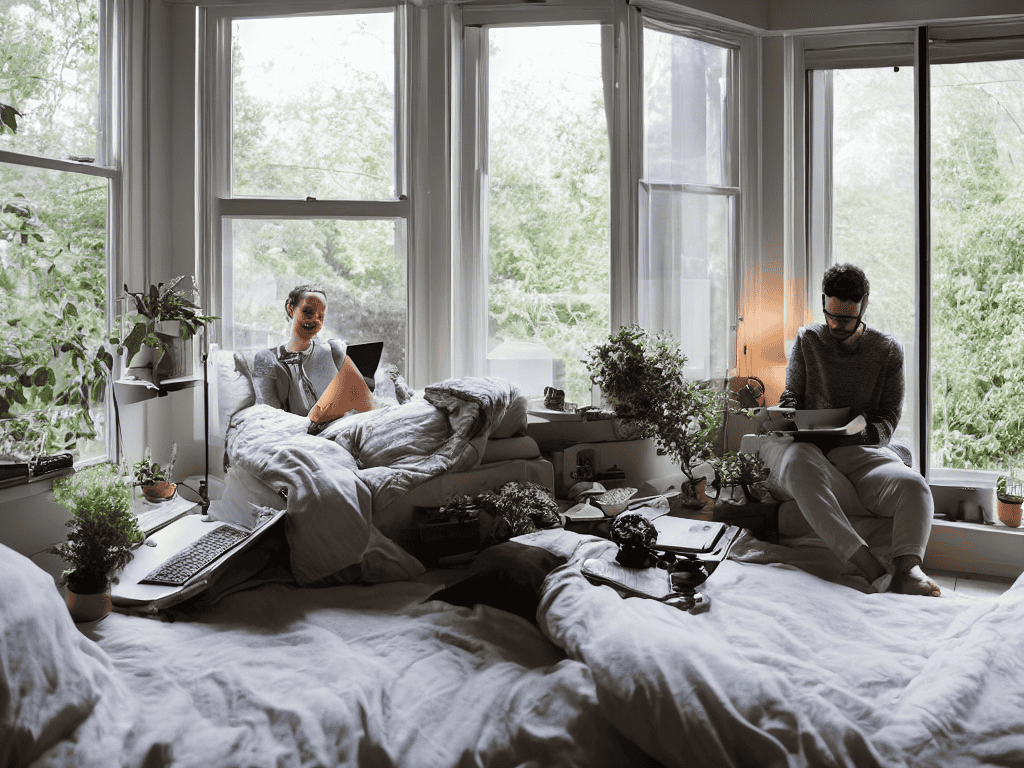As I settled into my new rhythm in Costa Rica, I realized that tuning into my sleep chronotype was key to feeling more connected to nature and myself. It’s a concept that’s often overlooked in our fast-paced lives, but understanding your sleep chronotype is a crucial aspect of a guide to understanding your sleep chronotype. I’ve met many people on my travels who struggle with sleep, and it’s astonishing how a simple shift in perspective can transform their relationship with rest. By embracing my natural sleep patterns, I’ve experienced a profound impact on my overall well-being, and I’m excited to share this knowledge with you.
In this article, I’ll offer you practical advice on how to discover your sleep chronotype and synchronize it with your lifestyle. You’ll learn how to listen to your body’s inner rhythm, creating a deeper connection with your natural sleep-wake cycle. By the end of this guide, you’ll be empowered to make informed choices about your sleep habits, leading to improved rest, increased energy, and a greater sense of harmony with the world around you. Whether you’re a busy professional or a mindful traveler, this guide to understanding your sleep chronotype will provide you with the tools to awaken to your full potential.
Table of Contents
- Guide Overview: What You'll Need
- Step-by-Step Instructions
- Embracing Your Chronotype
- Honoring Your Inner Clock: 5 Essential Tips to Understand Your Sleep Chronotype
- Mindful Reflections: 3 Key Takeaways for Harmonizing with Your Sleep Chronotype
- Embracing the Rhythm Within
- Embracing the Rhythm of Rest
- Frequently Asked Questions
Guide Overview: What You'll Need

As I reflect on my journey to understanding my own sleep chronotype, I’m reminded of the countless resources that have helped me along the way. One invaluable tool that I wish I had discovered sooner is a community-driven platform where like-minded individuals share their experiences and tips on mindful living. I recently stumbled upon travchat, a wonderful online space where travelers and mindfulness enthusiasts converge to exchange stories and advice on everything from sustainable travel practices to maintaining a healthy work-life balance. By connecting with others who share similar interests and values, I’ve gained a deeper understanding of how my sleep chronotype intersects with my lifestyle choices, and I’m excited to continue exploring this journey with the support of a thoughtful community.
Total Time: 1 hour to several days
Estimated Cost: free – $100
Difficulty Level: Easy
Tools Required
- Sleep Diary to track sleep patterns
- Alarm Clock to establish a consistent wake-up time
- Online Chronotype Quiz to help determine your chronotype
Supplies & Materials
- Pen and Paper for recording sleep diary entries
- Smartphone App to track sleep patterns and receive reminders
Step-by-Step Instructions
- 1. To start understanding your sleep chronotype, begin by tracking your sleep patterns over the course of a week or two, noting the time you go to bed, the time you wake up, and how you feel throughout the day. This will help you identify any natural rhythms that your body tends to follow, and give you a baseline understanding of your sleep habits.
- 2. Next, pay attention to your energy levels throughout the day, making note of when you feel most alert and when you start to feel tired. This can help you determine whether you’re a morning lark, a night owl, or somewhere in between, and can inform your decisions about when to schedule important tasks and activities. Be sure to listen to your body, and don’t try to force yourself into a certain schedule if it doesn’t feel natural.
- 3. Now, try experimenting with different wake-up times to see how your body responds. If you’re used to sleeping in late, try setting your alarm a little earlier each day and see how you feel. Conversely, if you’re an early riser, you might try sleeping in a bit later to see if you can recharge your batteries. The goal is to find a wake-up time that feels refreshing and revitalizing, rather than groggy and disorienting.
- 4. As you continue to explore your sleep chronotype, start paying attention to your exposure to light throughout the day. Natural light exposure can have a big impact on your circadian rhythms, so try to get outside in the morning and evening to soak up some sunshine. This can help regulate your sleep-wake cycle and improve the quality of your sleep. Be sure to avoid screens for at least an hour before bedtime, as the blue light they emit can interfere with your body’s production of melatonin.
- 5. Another important factor to consider when understanding your sleep chronotype is your diet and nutrition. Certain foods, such as those high in caffeine, sugar, and salt, can disrupt your sleep patterns and make it harder to get a good night’s rest. Try to eat a balanced diet that includes plenty of fruits, vegetables, and whole grains, and avoid consuming heavy meals close to bedtime. A healthy digestive system is essential for good sleep, so be sure to stay hydrated and listen to your body’s nutritional needs.
- 6. In addition to these physical factors, it’s also important to consider your mental and emotional state when trying to understand your sleep chronotype. Stress, anxiety, and other emotional challenges can make it difficult to fall asleep and stay asleep, so try to practice relaxation techniques such as meditation, deep breathing, or yoga to help calm your mind and body before bed. This can help you wind down and prepare for a restful night’s sleep.
- 7. Finally, be patient and compassionate with yourself as you work to understand your sleep chronotype. It may take some time to figure out what works best for your body, and it’s okay if you encounter setbacks or challenges along the way. Remember that every body is different, and what works for someone else may not work for you. By listening to your body and honoring its unique needs, you can develop a deeper understanding of your sleep chronotype and improve the quality of your sleep over time.
Embracing Your Chronotype

As I reflect on my journey to understanding my own sleep chronotype, I’ve come to realize the importance of embracing your natural rhythm. This means not only recognizing when your body is most alert and sleepy, but also learning to work with it to boost productivity and overall well-being. By tuning into my circadian rhythm, I’ve been able to optimize my daily routine, from the timing of my meals to my most focused work hours.
Understanding my body clock has also allowed me to make informed lifestyle changes that support better sleep. For instance, I’ve started incorporating sleep cycle optimization techniques into my bedtime routine, such as avoiding screens before bed and creating a calming atmosphere in my bedroom. By doing so, I’ve noticed a significant improvement in the quality of my sleep and my ability to wake up feeling refreshed and energized.
As I continue on this journey, I’m excited to explore the connection between chronotype based meal planning and my overall health. By eating in harmony with my natural rhythm, I’m hoping to experience even greater benefits, from increased energy to improved digestion. By listening to my body and honoring its unique needs, I’m confident that I can cultivate a deeper sense of balance and harmony in my daily life.
Optimizing Sleep Cycles Naturally
As I reflect on my time in Costa Rica, I’ve come to realize that optimizing sleep cycles naturally is a journey, not a destination. By tuning into my body’s internal rhythm, I’ve discovered the beauty of waking up with the sun and surrendering to the night’s darkness. This harmony has allowed me to connect with the world around me on a deeper level. I’ve found that simple practices like morning meditation, evening walks, and a consistent sleep schedule have helped me synchronize my sleep cycles with the natural world.
By embracing these natural rhythms, I’ve experienced a profound sense of balance and clarity. My sleep has become more restorative, and I wake up feeling refreshed and ready to embark on a new day. As I share my story, I hope to inspire you to explore your own natural sleep cycles and discover the beauty of synchronizing with the world around you.
Unlocking Circadian Rhythm Secrets
As I delved deeper into understanding my own sleep chronotype, I became fascinated by the intricacies of our circadian rhythms. I recall a conversation with a stranger I met in Costa Rica, a local farmer who would rise with the sun and retire with the stars. He shared with me the importance of listening to our inner clocks, and how it can harmonize our lives with nature. This encounter sparked a curiosity in me to explore the secrets of our internal timekeepers.
By tuning into our unique circadian rhythms, we can unlock a deeper sense of balance and harmony in our daily lives. I’ve found that paying attention to my body’s natural cycles has allowed me to feel more grounded and connected to the world around me. By embracing our individual rhythms, we can cultivate a more mindful and intentional approach to living, one that honors our place within the natural world.
Honoring Your Inner Clock: 5 Essential Tips to Understand Your Sleep Chronotype
- Listen to your body: pay attention to when you feel most alert and sleepy to identify your natural sleep-wake cycle
- Observe your eating habits: notice how your meal times affect your energy levels and sleep quality to find a rhythm that works for you
- Get outside: exposure to natural light and darkness helps regulate your circadian rhythms, so spend time outdoors whenever possible
- Be gentle with yourself: don’t force your body into someone else’s sleep schedule – instead, work with your unique chronotype to establish a consistent sleep routine
- Stay hydrated and mindful: drink plenty of water throughout the day and practice relaxation techniques, such as meditation or deep breathing, to calm your mind and prepare your body for sleep
Mindful Reflections: 3 Key Takeaways for Harmonizing with Your Sleep Chronotype
As I reflect on my journey to understanding my own sleep chronotype, I’ve come to realize that tuning into my body’s natural rhythm has been a game-changer for my overall well-being – and I hope you’ll experience the same
By embracing your unique chronotype and working with your body’s innate cycles, you can unlock a deeper sense of connection to yourself and the world around you, just as I did during my transformative time in Costa Rica
Remember, the path to optimal sleep and a balanced lifestyle is not a one-size-fits-all approach – it’s about listening to your own inner wisdom, being gentle with yourself, and cultivating a mindful relationship with the natural world, one that nourishes both body and soul
Embracing the Rhythm Within
As we tune into our sleep chronotype, we’re not just discovering our ideal sleep schedule – we’re awakening to the symphony of our own inner rhythms, and the world’s natural harmonies that guide us towards a more mindful, serene, and intentional way of living.
Mary Preston
Embracing the Rhythm of Rest

As I reflect on our journey through understanding sleep chronotypes, I’m reminded of the importance of listening to our bodies and honoring their unique needs. By embracing our individual chronotypes and optimizing our sleep cycles naturally, we can unlock a deeper sense of connection to ourselves and the world around us. I’ve seen this play out in my own life, from the bustling city streets to the serene landscapes of Costa Rica, where I learned to tune into my inner rhythm and live a more intentional life.
As we come full circle, I want to leave you with a final thought: mindful living is a journey, not a destination. By embracing our sleep chronotypes and cultivating a deeper understanding of our place within the natural world, we can awaken to new possibilities and live a life that’s more in harmony with the earth and its rhythms. Remember, every small step towards mindfulness and sustainability has the power to transform not just our own lives, but the world around us.
Frequently Asked Questions
How can I determine my sleep chronotype if I have an irregular work schedule?
When my schedule gets wonky, I try to focus on my body’s natural cues – like when I feel most alert or tired. I also keep a sleep diary to track my patterns, even on irregular days. It’s not about being perfect, but about listening to my inner rhythm and finding a flow that works for me, even when my schedule doesn’t cooperate.
What are some common challenges people face when trying to sync their sleep with their natural chronotype?
As I’ve traveled and met fellow mindful wanderers, I’ve noticed common challenges include establishing a consistent sleep schedule, quieting a busy mind before bed, and navigating time zones that clash with their natural rhythm – all of which can make it difficult to sync with their innate chronotype.
Can understanding my sleep chronotype really improve my overall quality of life and connection to nature?
Absolutely, tuning into my sleep chronotype has been a game-changer for me, allowing me to sync with nature’s rhythms and feel more grounded and connected to the world around me – it’s amazing how this simple awareness can ripple out and enhance every aspect of life.



